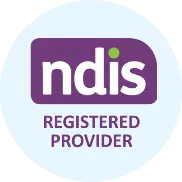Mental Health Conditions
Mental health Conditions and NDIS Eligibility





The National Disability Insurance Scheme (NDIS) offers potential eligibility for individuals with mental health conditions. However, not all mental health conditions automatically qualify for NDIS support. To be eligible, you must demonstrate that your mental health condition causes a psychosocial disability that is likely to be lifelong and significantly impacts your day-to-day functioning.

Let’s discuss some of the common mental health conditions below:
Schizophrenia:
Schizophrenia is a complex and chronic mental health condition that affects a person's thoughts, perceptions, emotions, and behaviour. Individuals with schizophrenia may experience hallucinations, delusions, disorganized thinking, and difficulties in social interactions. The condition can significantly impact daily functioning, making it challenging to maintain employment, manage personal care, and participate in social activities. If the symptoms of schizophrenia are severe, enduring, and substantially affect a person's ability to perform daily tasks, they may be eligible for NDIS support.
Anxiety disorders:
Anxiety disorders encompass various conditions characterized by excessive and persistent feelings of fear, worry, and anxiety. Common anxiety disorders include generalized anxiety disorder (GAD), panic disorder, social anxiety disorder, and specific phobias. These conditions can significantly impair an individual's ability to manage daily activities, such as attending work or school, engaging in social interactions, and maintaining personal relationships. If the symptoms of an anxiety disorder are severe, enduring, and significantly affect daily functioning, individuals may be eligible for NDIS support.
Mood disorders:
Mood disorders, such as bipolar disorder and depression, affect a person's emotional state and overall well-being. Bipolar disorder involves episodes of mania (elevated mood, increased energy) and depression (profound sadness, low energy), while depression typically involves persistent feelings of sadness, loss of interest, and changes in appetite and sleep patterns. These conditions can interfere with an individual's ability to maintain stable employment, engage in social activities, and perform daily tasks. If the symptoms of a mood disorder are severe, enduring, and substantially impact daily functioning, individuals may qualify for NDIS support.
Post-Traumatic Stress Disorder (PTSD):
PTSD is a mental health condition that can develop after experiencing or witnessing a traumatic event. Individuals with PTSD may experience intrusive memories, nightmares, flashbacks, and intense emotional distress related to the traumatic event. These symptoms can significantly impair one's ability to function in various areas of life, such as work, relationships, and self-care. If the symptoms of PTSD are severe, enduring, and substantially affect daily functioning, individuals may be eligible for NDIS support.
Obsessive-Compulsive Disorder (OCD):
OCD is a chronic mental health condition characterized by intrusive thoughts (obsessions) and repetitive behaviours or mental rituals (compulsions). Individuals with OCD may experience excessive fear, anxiety, and distress, leading to significant time-consuming rituals or avoidance behaviours. OCD can interfere with daily activities, work or academic performance, and social interactions. If the symptoms of OCD are severe, enduring, and significantly impact daily functioning, individuals may qualify for NDIS support.
Other mental health conditions:
The NDIS recognizes that mental health conditions are diverse and can affect individuals differently. Besides the conditions mentioned above, other mental health conditions, such as personality disorders, dissociative disorders, and eating disorders, may also be eligible for NDIS support if they meet the criteria of severe, enduring, and substantial functional impairment.
To apply for the NDIS for a psychosocial disability, you need to:
- be under 65 years of age
- live in Australia and be an Australian citizen or permanent resident
- Have a severe and enduring mental health condition that results in significant functional impairment (difficulty doing daily tasks) that requires ongoing support to help you with these daily activities.
